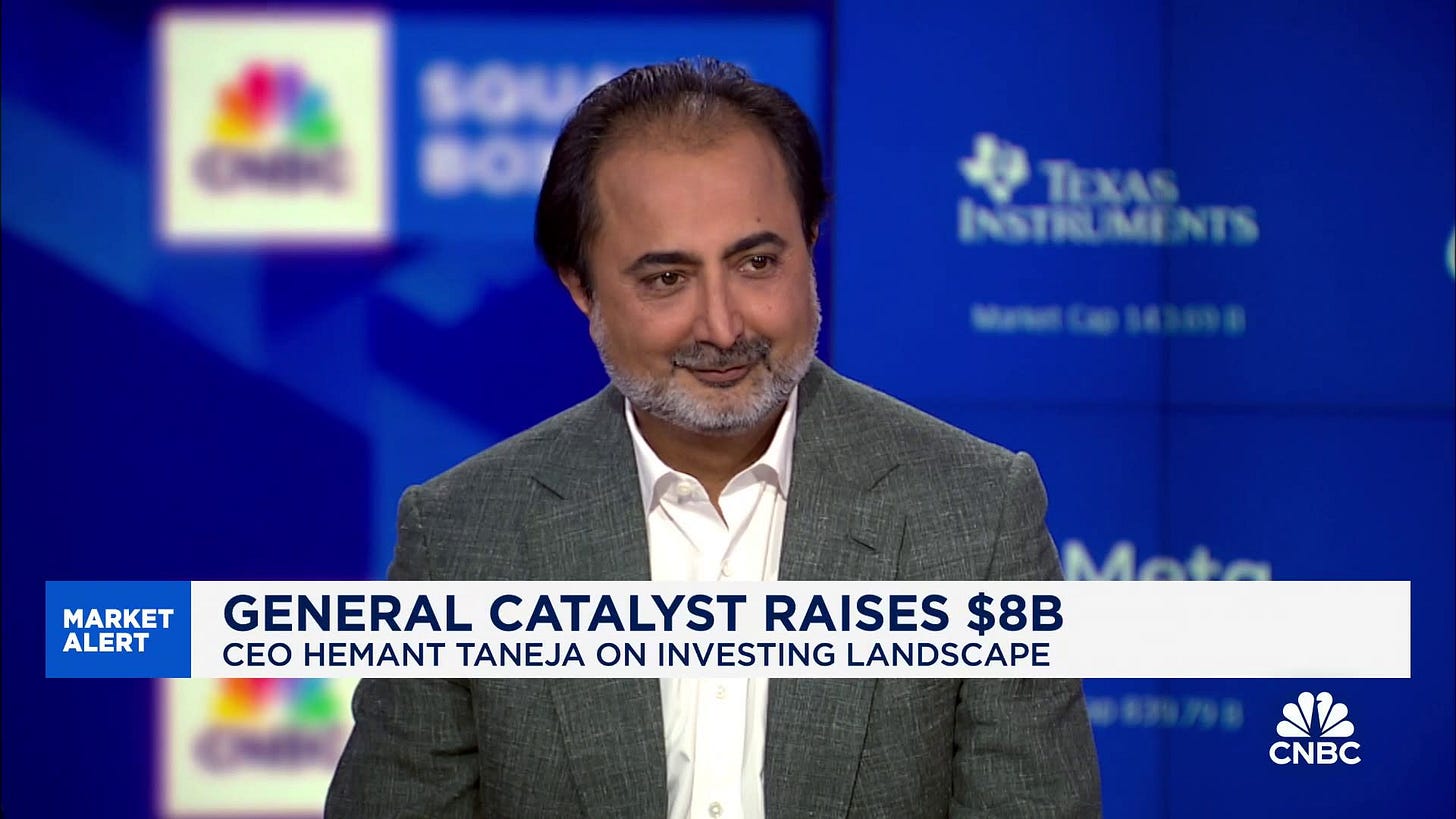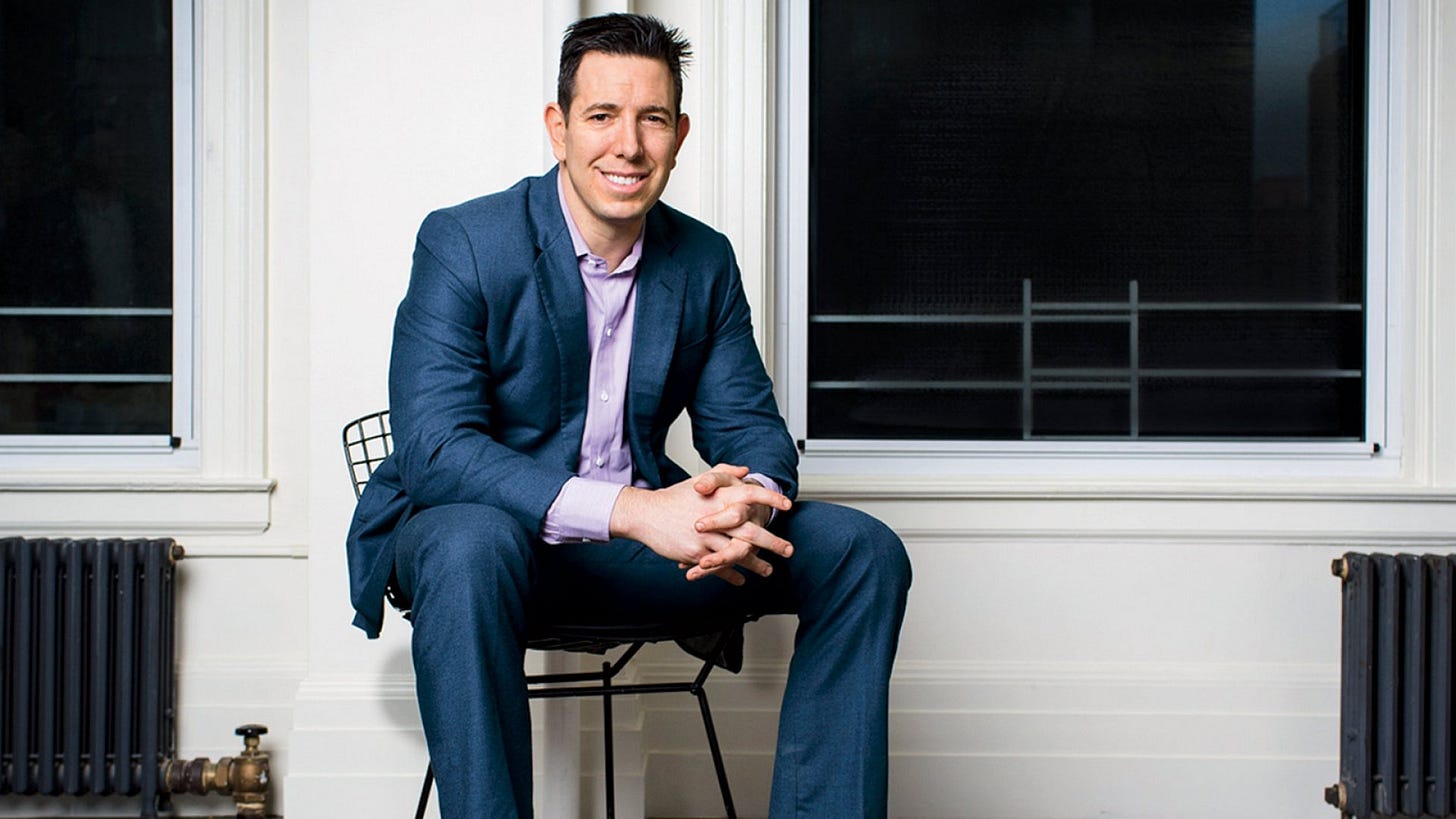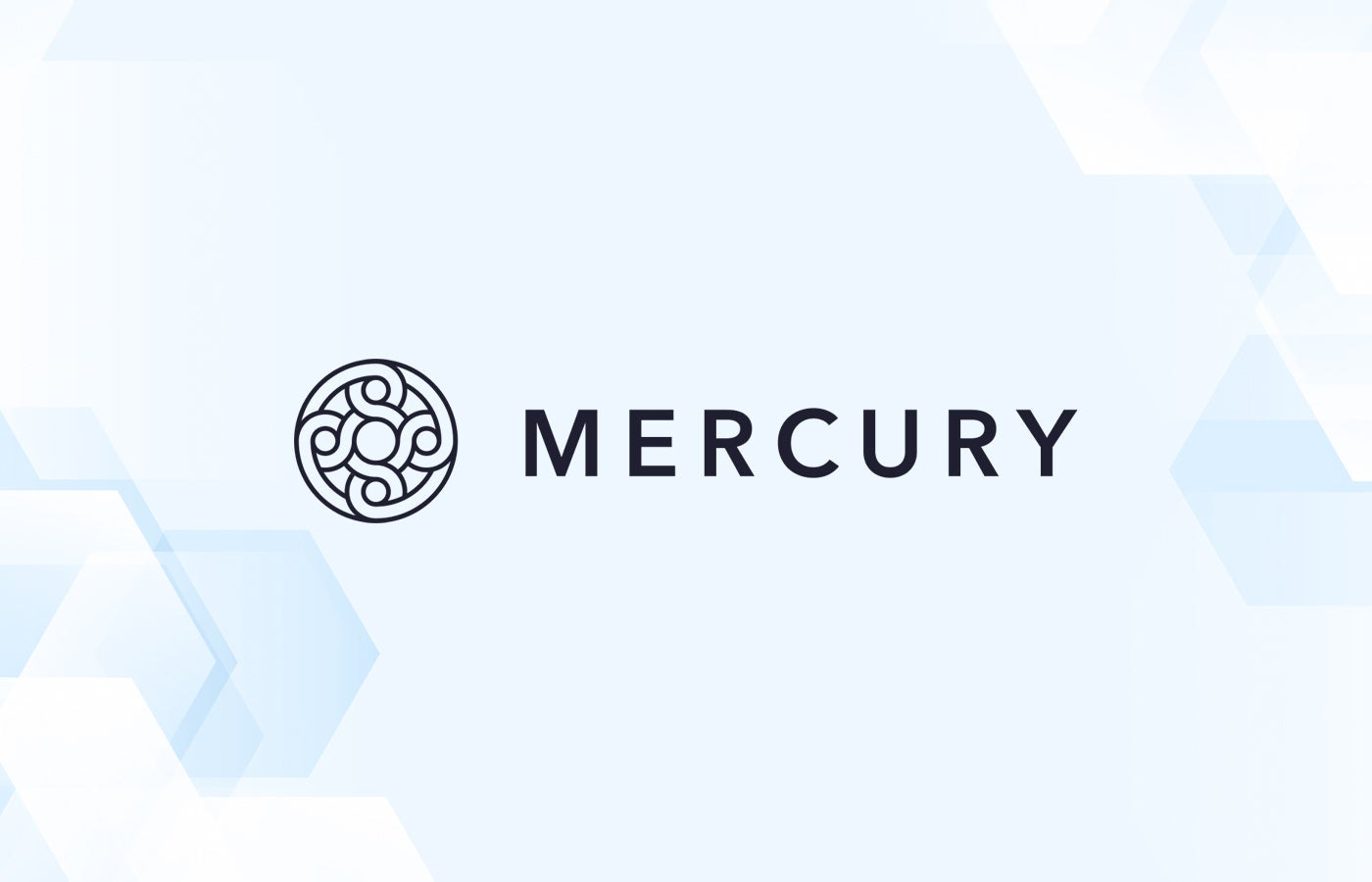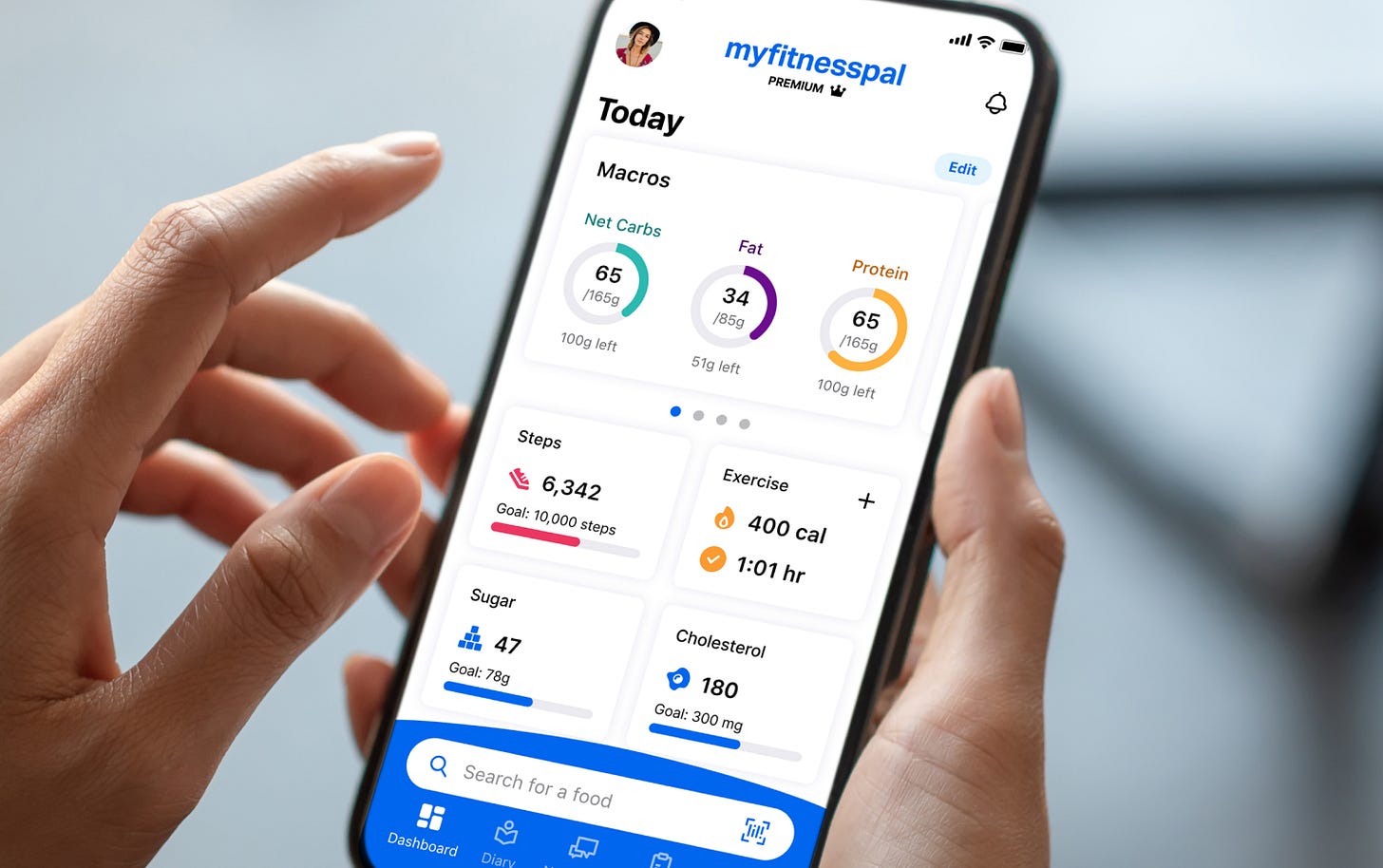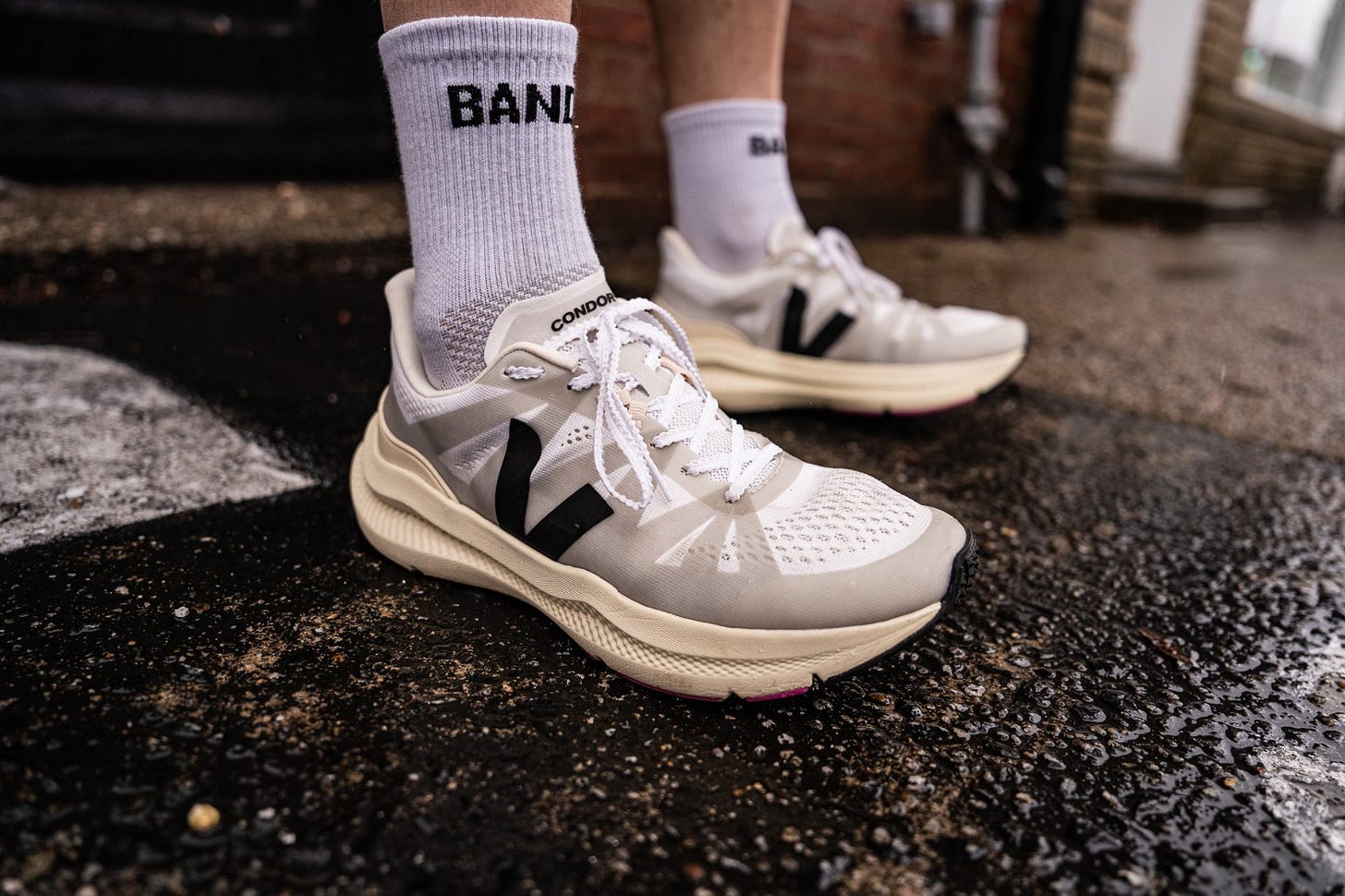Week Sixteen: VC is dead.
VC is not VC anymore. Buy a hospital: you're a VC. Take equity for regulatory advice: you're a VC. Invest in a startup with cash: go away you scam artist!
Housekeeping
Welcome to the sixteenth edition of Venture Vantage. We’ll be exploring topics related to tech and the venture ecosystem.
I’ve been reminding myself this week that “sometimes the best deals are the deals not done.” This applies in every area of life, not just venture investing. My guiding phrase to adhere to this has been, “if it’s not a fuck yes, it’s a fuck no.” Remember to only focus on the “fuck yes” things in your life this week.
As always, please hit me back with feedback and comments—I’m constantly seeking ways to make this newsletter a more valuable read.
Diving right in and keeping things brief:
News, Deals, and Pretty Things
Latest & Greatest:
I just launched a new personal website at kia.vc. I’d love your thoughts & feedback.
Looking forward to being in SF from Feb 25-28, and at Expo West this year.
Seeing more deal flow than we know what to do with here at Fortify. If you want to join our deal sharing network, click here.
Is GC even a VC? Is VC even VC?
Context:
General Catalyst is pushing beyond traditional VC, expanding into wealth management and launching a Fund of Funds for early-stage funds and emerging managers.
This follows its 2023 acquisition of a hospital system—more akin to private equity—and its support of startups using roll-up acquisition strategies.
The firm recently hired Tracy Fong to lead fund investments, a move that aligns with similar strategies from Bain Capital Ventures, Sequoia Heritage, and Andreessen Horowitz.
While this “inside track” approach has gone in and out of favor, General Catalyst’s entry is significant given the drop in capital flowing to emerging funds last year.
Vantage:
General Catalyst is positioning itself as more than a VC firm—it’s building an ecosystem. This move is less about passive LP returns and more about early access to top founders via emerging managers. I guess the idea is that by having a whole suite of resources at their disposal and a hand in every pot, they won’t miss out on the upside of great deals?
The blurring lines between VC and PE continue. From roll-ups to fund-of-funds strategies, firms are increasingly acting like diversified asset managers rather than pure venture investors. To me, this is widening the divide between the big boy $1B+ funds who act like asset managers, and the risk-taking emerging fund managers.
For emerging managers, General Catalyst’s capital is tempting, but it comes with a tradeoff: backing from a larger VC means potential competition for follow-on deals. If I was betting, I would put money on the fact that GC (as an LP) requires that certain pro-rata or ROFR benefits go to GC rather than the emerging manager. But that’s just a guess!
Watch the check sizes. If they’re large, this is a returns-driven strategy; if they’re small, it’s about influence and sourcing. Either way, General Catalyst is playing a long game beyond just writing startup checks.
Okay, why can no one define VC anymore??
Context:
Bradley Tusk is a VC, political strategist, philanthropist, and writer. He co-founded and leads Tusk Venture Partners, a NYC-based firm backing early-stage tech startups in heavily regulated industries.
Tusk raised a Fund I (of unknown size) in 2016, a $70M Fund II in 2019, and a $140M Fund III in 2022.
Tusk has a history in politics, too: before launching Tusk Venture Partners, Bradley Tusk managed Michael Bloomberg’s 2009 mayoral campaign, served as Illinois’ Deputy Governor (overseeing budget, operations, policy, and communications), and was Senator Chuck Schumer’s communications director.
Tusk made early bets on companies like Uber, taking equity instead of cash for political advisory work—a move that paid off big (he made $100M+ from that Uber equity).
Tusk Venture Partners is shifting from traditional VC to an equity-for-advice model, scrapping plans for a fourth fund. This move lets Bradley Tusk sidestep a tough fundraising climate and double down on his political expertise. He pointed to weak exits and the Biden administration’s strict stance on tech M&A as key factors.
Vantage:
This is a bold but logical move. Tusk’s real value is in navigating regulatory hurdles, not portfolio management. By ditching LPs, he maximizes his upside and eliminates fundraising headaches.
The strategy resembles a modernized version of the Uber playbook—betting on companies where political maneuvering is make-or-break. In an AI-driven world, this could be a major edge.
The broader takeaway: even well-performing VC firms are struggling with DPI. Without liquidity events & exits, capital remains locked up, and LPs are hesitant to re-up. Expect more VCs to rethink their models.
Equity-for-advice just sounds like an advisor or consultant to me, not a venture fund. But hey, I guess you gotta do what you gotta do to make money!
Mercury raises even MORE money
Context:
Sequoia Capital is in talks to lead an investment into Mercury, the digital banking startup.
People are expecting Mercury’s valuation to sit at just above $3B for this round, up pretty significantly from its $1.6B valuation in 2021.
The company recently hit $500M in annualized revenue.
Vantage:
SVB’s collapse was the perfect catalyst for Mercury’s explosive growth. Their head to head competition with Brex around insurance after SVB’s collapse was a huge acquisition funnel for them.
Between Mercury Raise and products like invoicing, Mercury’s customers are some of the most loyal I’ve seen in the ecosystem. It’s really impressive how they’ve built such strong brand loyalty.
Fintech funding & transactions had slowed for quite a while, but I think this round will be good momentum for the industry as a whole. Hopefully, this signals some liquidity for companies like Plaid and Stripe, increasing the appetite of the secondaries market.
Hungry for acquisitions
Context:
MyFitnessPal acquired AI meal-planning startup Intent to launch personalized meal plans within its app.
The feature, part of a new $99.99 "Premium Plus" tier, tailors meal plans to users’ dietary needs and goals.
This is MyFitnessPal’s first acquisition since private equity firm Francisco Partners bought it for $345M in 2020.
MyFitnessPal has raised a total of $18 million over five funding rounds.
In 2015, Under Armour acquired MyFitnessPal for $475 million. However, in 2020, Under Armour sold the app to Francisco Partners for $345 million, indicating a decrease in valuation over that period.
CEO Mike Fisher, who took over in January 2024, says this is a long-term growth play, not a quick exit move.
As of 2020, the platform had more than 200 million users. In 2023, the company generated $310 million in revenue, marking a 25% increase from the previous year. Ho-ly shit.
Vantage:
AI-powered personalization is becoming a must-have in health tech, and MyFitnessPal is using it to drive subscriptions.
This is a classic private equity strategy—acquiring features to boost revenue and retention post-buyout.
Weight loss and fitness apps are shifting from simple tracking to AI-driven coaching, capitalizing on users’ willingness to pay for results.
Startups in AI health and wellness should take note—acquirers are looking for sticky, high-retention products.
Rapid Fire
Context: Shopify’s Q4 revenue jumped 31% to $2.8B, with free cash flow up 37% to $611M. | Vantage: Damn, it seems like Shopify is STILL experiencing some incredibly explosive growth. It seems like the appetite for e-commerce still is going strong, with more people shifting purchasing habits to online.
Context: Olipop secured $50 million in new funding, bringing its valuation to $1.85 billion—an impressive jump from $200 million in 2022. The round was led by JPMorgan Growth Equity Partners. The soda brand, which is profitable and expects to generate $400M-$450M in sales this year, plans to invest in product development, marketing, and expanding distribution. CEO Ben Goodwin suggested this could be Olipop’s final funding round, hinting at a potential IPO or acquisition in the future. | Vantage: Olipop’s rapid valuation growth reflects the rising investor appetite for functional, health-conscious consumer brands. Its profitability signals a broader shift in venture capital priorities, emphasizing sustainable growth over aggressive scaling. A future IPO or acquisition could further validate the category, attracting more investment into the better-for-you beverage space. C’mon Pepsi or Coke, acquire some of these folks!
Context: Brett Brewer, co-founder and general partner at Crosscut Ventures, is stepping away from the LA-based firm but will continue working with portfolio companies from its first five funds. His exit coincides with Crosscut’s efforts to raise its sixth fund, targeting $85 million, and follows the recent addition of Jon Ylvisaker as a partner. | Vantage: This is the fourth or fifth big GP departure I’ve covered here on VV. It seems like fund managers are starting to leave funds at an accelerated rate — the question just becomes: where the hell are they going? Is VC just not as lucrative as it once was, is raising a fund too big of a pain in the ass? What is happening here?!?
Deals that caught my eye
Here’s the latest and greatest:
Epicore Biosystems, a company that looks incredibly similar to the Nix Biosensors we covered in Week 12, just raised a $26M Series B led by the Steele Foundation for Hope.
Edacious, a platform to help give insight into food using labs, raised a $8.1M seed round led by Patagonia’s Tin Shed Ventures, with participation from the Nest Family Office, Trailhead Capital, Grantham Environmental Trust’s Neglected Climate Opportunities, iSelect Capital, First Thirty, Pelican Ag, and other private investors.
Those are honestly the only two deals that have caught my eye this week… seems like it’s been a slow week!
A hot take
UI/UX will become less important as AI begins to find its way into new use cases.
The only use for UI/UX is to create a seamless interaction between humans and platforms. My guess is that in the next decade or so, humans will almost entirely stop interacting with platforms. Instead, AI will take over most of the interaction with platforms, leaving humans to just interact with their AI agents. That leaves us with 2 likely contact points between humans and technology: entertainment platforms and AI agents. Beyond that, I struggle to see where UI/UX would be necessary. Ergo, as AI grows, UI/UX will implode.
Some cool stuff on my radar
Kiehl’s is running a 25% off sale right now, which is a pretty damn good deal. I love the Facial Fuel — it smells great and doesn’t feel oily.
I’ve been looking for everyday shoes for NYC for the longest time. Common Projects hurt my feet too much, Asics & Hokas are way too ugly… I couldn’t find what I was looking for, until now. I discovered the VEJA Condor 3, and it’s Hoka-level comfort (maybe even more) with good design. Would I run a marathon in these? No, but I think I could walk a marathon in them!
On the note of footwear, I have been loving these socks from Feetures. Perfect for any occasion, from the gym to the office.
I recently got a Hypervolt Go2, and while it hasn’t solved all my leg problems, it has been a massive help. At $110, it’s a great price for what you get.
Icing on the Cake
Continued Reads
This week’s continued read is Playing to Win. A snippet:
Winning should be at the heart of any strategy. If you’re not in business to win, you’re in business to fail.
This book reminds me a lot of something I weigh myself: action vs. satisfaction. How much is something feeding your ego, and how much is it feeding your family? Read the book here.
Word of the Week
This week’s word is:
Pro Rata Rights: A term that gives investors the right (but not the obligation) to maintain their ownership percentage in future funding rounds by participating in subsequent financings.
Early-stage investors push for pro rata rights to protect their stake in breakout companies. If the startup takes off, pro rata lets you keep your ownership without getting boxed out by bigger checks in later rounds.
Closing
Thanks for taking time out of your Wednesday to read. This edition was created with Ty from Market Block in mind.
As always, you can find me on X and LinkedIn, and I’d love to hear from you via email. Whether it’s talking startups or just shooting the shit, I’m always happy to connect.
Onto the next!
//Eli



